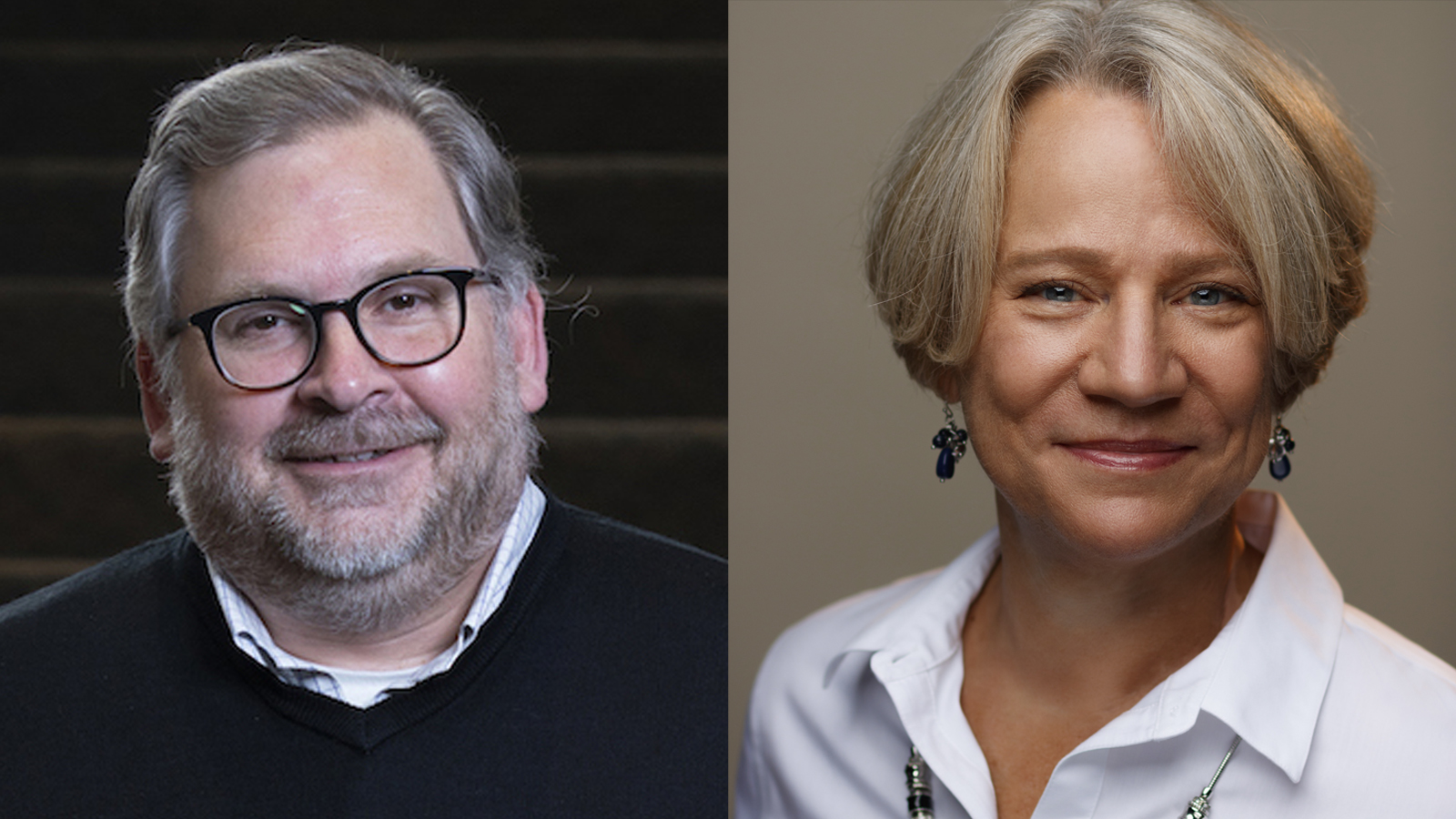Two ARHU Professors Named 2022 HumetricsHSS Community Fellows
March 10, 2022

Trevor Parry-Giles and Lindsay Yotsukura will work to bring a values-based framework to the college and campus community.
By Jessica Weiss ’05
Professor of Communication Trevor Parry-Giles and Associate Professor of Japanese Lindsay Yotsukura in the School of Languages, Literatures, and Cultures (SLLC) have been named 2022 community fellows with the Humane Metrics in the Humanities and Social Sciences (HuMetricsHSS) initiative. Each receives $4,500 for a 15-month fellowship to take on a project that seeks to transform academic culture at their campus communities.
Co-led by Dean of the College of Arts and Humanities (ARHU) Bonnie Thornton Dill and an international group of co-PIs from the academic and nonprofit sectors, HuMetricsHSS is an Andrew W. Mellon Foundation-supported project launched in 2016 that aims to create new, values-based frameworks for scholars in the humanities and social sciences (HSS) to measure the impact of their work. The frameworks, which might include values such as equity, soundness and community, seek to encourage institutions to move beyond traditional metrics—like citation counts and ranking systems—in evaluating the work of faculty and staff, ultimately improving the academy writ large.
Parry-Giles and Yotsukura are part of the first group of community fellows—individuals working in academic and nonprofit academic-adjacent sectors who are seeking to undertake institutional change in line with HuMetricsHSS values.
“In order for the initiative to have meaning and impact, the ideas have to be applied and revised based on the experiences of people in different types of institutions and in different contexts,” Thornton Dill said. “The fellows provide us an opportunity to learn more and spread engagement in these conversations.”
Parry-Giles, who was recently named the associate dean for diversity, equity, and inclusion (DEI) in the college, seeks to bring the HuMetricsHSS framework and values-based perspective to ARHU, first by initiating conversations and discussions. A values-based transformation of the overall academic culture fits squarely within the college's DEI goals, he said. Central to these conversations, Parry-Giles noted, is the “understanding and value of narrative” in how faculty demonstrate their academic impact and influence.
Yotsukura, who also serves as associate director for academic affairs for SLLC, seeks to bring together the myriad programs she oversees and helps to coordinate—including the Language House Immersion Program and the Language Partner Program—through the framework of a Community of Practice, a robust model of learning that prioritizes the exchange of experiences and collaboration. This will support student engagement with others “within and across languages, cultures, communities, ethnicities, races, nations and religions,” she said. She also plans to work with academic units within and beyond the SLLC to foster greater cross-program discussions, expand the ways in which scholarship and creative production are considered in the appointment, promotion and tenure process, and “help to establish more innovative, equitable and just means of evaluating contributions to the humanities and beyond.”
“Parry-Giles and Yotsukura will be taking these broader topics and discussions into the units and the college in very specific and concrete ways—expanding discussion and consideration of the many ways this kind of thinking can impact our practices going forward,” Thornton Dill said.

